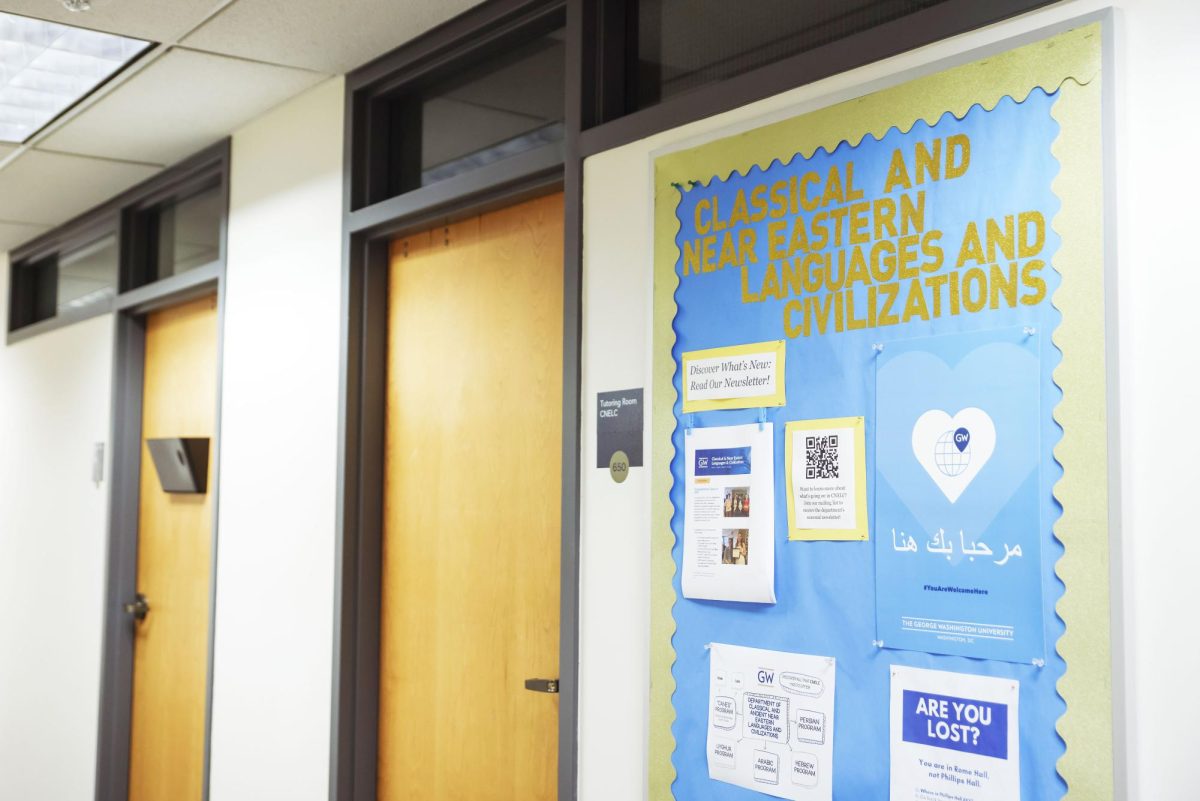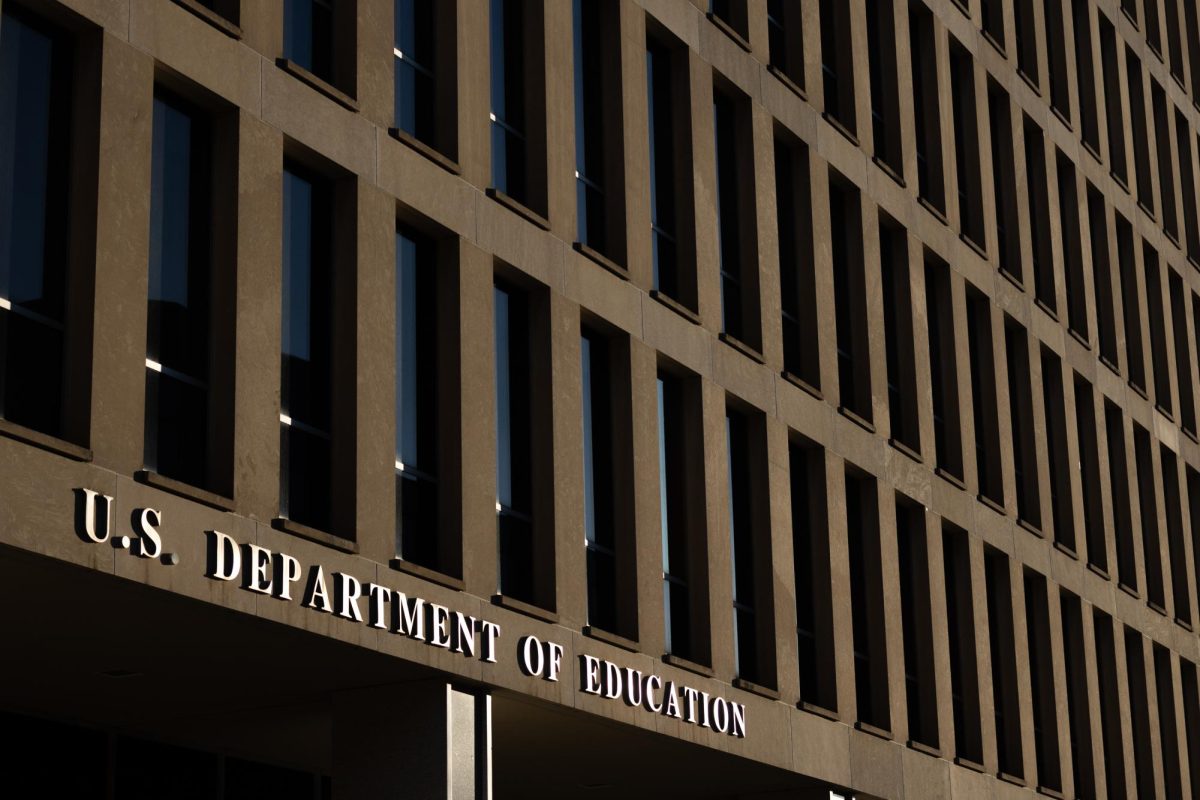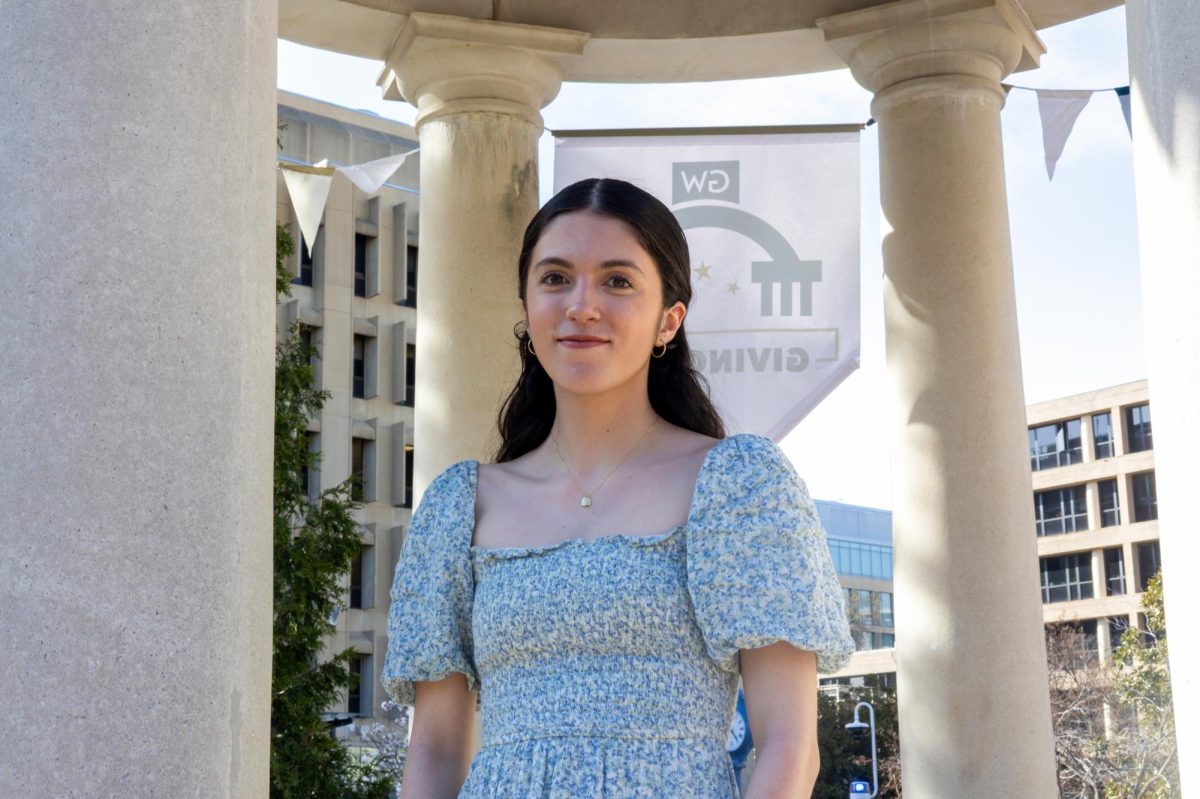Updated Aug. 19, 2024, at 6:17 p.m.
Officials will debut a Uyghur language studies program as part of the Classical and Near Eastern Languages and Civilizations Department this academic year.
The department, housed within the Columbian College of Arts & Sciences, added three new Uyghur language classes for the fall 2024 semester after the Elliott School of International Affairs offered a beginner Uyghur language course in the fall and spring semesters of the last academic year. Faculty within the program said the addition will give Uyghur studies a permanent place at the University and allow students and professors to continue promoting the ethnic group’s language and culture.
An anonymous donor in May 2023 gave $900,000 to the Sigur Center for Asian Studies, a research institute and the academic home of the Asian Studies Program at Elliott School, to aid the Sigur Center’s Uyghur Studies Initiative. The donor designated the fund to graduate-level humanities research about the Uyghur people, with four percent of the donation used to fund advanced Uyghur language courses.
“We’re just delighted at the fact that we went from zero to 60 miles per hour with regard to getting Uyghur on the map at Columbian College and in the bulletin and in our department, and we’re so supportive of everything that Elliott is doing with us,” said professor Christopher Rollston, the CNELC department chair.
The Uyghur are Sunni Muslims who speak the Uyghur language, which has Turkic linguistic and Perso-Arabic script origins. Most Uyghur people live in the Xinjiang region of Northwest China, where the Chinese government has reportedly targeted and imprisoned Uyghur religious leaders, forcibly sterilized Uyghur women and detained more than a million Uyghur people to “re-education camps.”
In early 2018, under the “becoming family” policy, the Chinese government began sending officials to the Xinjiang region to stay in the homes of families in order to monitor and collect information on them.
GW is one of few schools across the nation to offer Uyghur language studies. Indiana University Bloomington, the University of Kansas and Harvard University also offer Uyghur language courses.
Rollston said he had discussions with Sigur Center Director Eric Schluessel, an associate professor of history and international affairs, about adding Uyghur language courses to the department in the fall 2023 semester since language programs are typically housed in CCAS. Rollston said he also spoke with CCAS Dean Paul Wahlbeck, Vice Dean Kim Gross and Elliott School Senior Associate Dean of Academic Affairs Ben Hopkins who were “very supportive” of the addition.
Rollston said adding Uyghur to the CNELC was a “natural move” since the department previously taught the Turkish language and currently teaches other languages with Perso-Arabic script. Uyghur has been “fully integrated” into the department after adding it to the website, announcing the addition in the CNELC newsletter, registering it with the University bulletin and posting a bulletin board at their offices, he said.
Rollston said he anticipates that enrollment in the courses will be similar to last year, which had eight students in the fall 2023 semester and four students in the spring semester. There are currently four students enrolled across the three sections of Uyghur language courses offered during the fall 2024 semester, according to the enrollment dashboard. Schluessel said because the classes did not appear on the University bulletin when students registered for classes in the spring, he believes there might be “very low” enrollment during the semester.
Rollston said he is “extraordinarily happy” at the current enrollment numbers, since the language is only spoken by approximately 11 million people worldwide.
“It’s going to take some time to build those numbers out and that will basically be organic growth that we anticipate will occur as Uyghur studies at GW continues to grow and become better known,” Rollston said.
Rollston said Mustafa Aksu, a professor of Uyghur, is the sole faculty member for the program but that the department will remain flexible in adding additional faculty if student demand for the courses requires it. Aksu taught the language in China before coming to the United States and during summer courses at the University of Wisconsin-Madison.
Aksu said the beginner and intermediate Uyghur classes will teach students reading, writing, listening and speaking skills as well as lessons about Uyghur culture. Aksu will teach Beginner Uyghur I and Intermediate Uyghur I in the fall semesters while teaching Beginner Uyghur II and Intermediate Uyghur II in the spring semesters, he said. Aksu said the graduate-level class covers the same skills as the undergraduate class but includes coursework on translation.
Aksu said the Chinese government’s suppression of the language makes it necessary to teach the language to Uyghurs who live outside China and others to preserve the Uyghur language and culture.
“It’s really important to me because I’m a huge advocate for the Uyghur language,” Aksu said. “And, of course, learning Uyghur language also creates opportunities for people to work in nonprofit organization, maybe, especially in human rights spaces and also in government agencies.”
He said the Uyghur community presence in the D.C. area allows him to bring in native speakers of the language to interact with students. There are between 8,000 to 10,000 Uyghur people living in the U.S., and the D.C. area is home to the largest Uyghur community in the country, according to the Uyghur American Association.
“The DMV is home to a small Uyghur diaspora group,” Aksu said. “Lots of Uyghurs, they live in Virginia and Maryland and D.C. area, so that gives me an opportunity to bring them to the classroom so both beginner and intermediate students will have interactions with them,” Aksu said.
Aksu said he has received interest about the classes over the summer from students from GW and the Consortium of Universities of the Washington Metropolitan Area, a group of universities in the D.C. area that share resources, including the opportunity to take classes not offered at their home institution.
“I really hope that more people will take the class because the Uyghur language is such a beautiful language and also it’s a gateway to Central Asia,” said Aksu. “And if you speak Uyghur and you can learn Uzbek very fast and Turkish and other Turkic languages.”
Schluessel, the Sigur Center director, said the Elliott School housed the beginner Uyghur course in fall 2023, but he wanted to see all language programs at the University go through CCAS so Uyghur would have proper support and have a departmental “home.”
The Sigur Center holds the endowment in its accounts and provides the department four percent of interest garnered from the endowment every year to pay Uyghur course instructors, Schluessel said.
“The course of the past year, we have worked to create its own course code, UYGR and a number of courses to go into the bulletin, so that GW will always be able to offer this class,” Schluessel said. “Not as a one-off, not as an ad hoc thing but permanently. Permanent funding will mean a permanent class.”
This post was updated to correct the following:
The course code for Uyghur is UYGR, The Hatchet initially incorrectly reported that the code was UYTR. The Hatchet also incorrectly reported that the Chinese government made it illegal to own books in the Uyghur language, while many books are banned, the government allows books translated from Chinese into Uyghur. We regret these errors.





